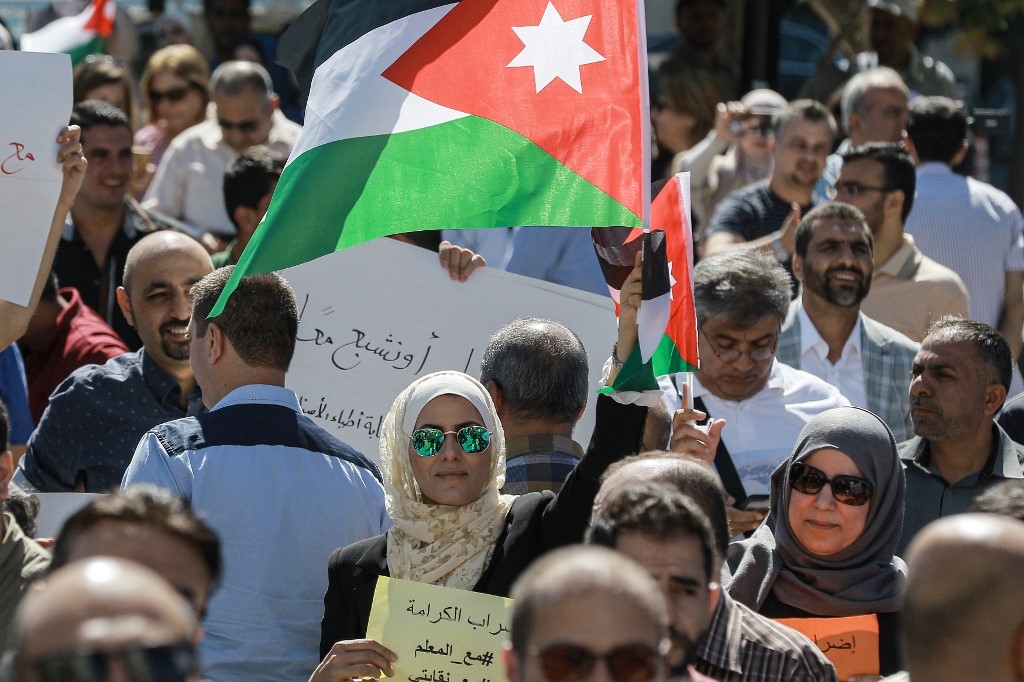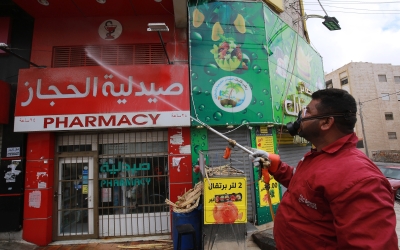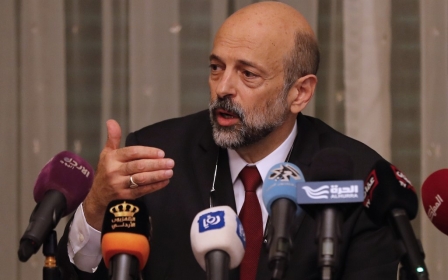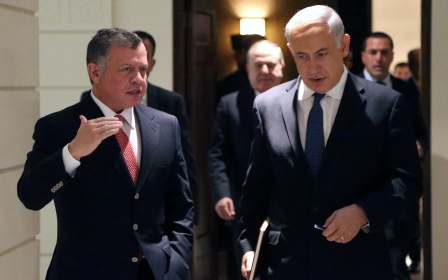Jordan arrests leaders of teachers' union in crackdown on dissent

Jordanian security forces arrested leading members of the opposition-run teachers' union on Saturday, raided its offices and shut it down for two years, escalating a confrontation with a group that had become a leading source of dissent.
Prosecutors charged Nasser Nawasreh, the acting head of the Jordanian Teachers Syndicate, with incitement over a speech to supporters last Wednesday that had criticised Prime Minister Omar al Razzaz's government. They also summoned members of the union's council for questioning on "criminal and corruption charges," according to the official Petra news agency.
The exact nature of the alleged "crimes" were not laid out, but Hassan Abdallat, Amman's prosecutor-general, said they included "financial violations," according to Petra. The prosecutor-general also issued a gagging order on investigations into the case, the agency said.
On Saturday, riot police were deployed near the seat of government in the capital Amman and in other areas where teacher activists were planning protests. Security forces also raided the union's headquarters in the city of Karak.
Political opposition is often marginalised in Jordan, but protests have grown in recent years over eroding living standards, corruption and the slow pace of political reforms.
Saturday's crackdown on the union would "only further aggravate political tensions by the government at a time people are choked under hard economic conditions," said Murad Adailah, head of Islamic Action Front, the largest opposition party, according to Reuters.
The 100,000-strong union went on strike last year, shutting down schools across Jordan for a month in one of the longest and most disruptive public-sector strikes in the country's history. In recent weeks, its leadership had accused the government of failing to honour a deal signed last October that had ended the strike.
That deal had included a 50 percent pay rise this year. But in April, the cash-strapped government said it would freeze public sector raises, citing economic woes caused by the coronavirus pandemic.
Some officials have also accused union leaders of harbouring the Islamist opposition’s political agenda. The union says this accusation is part of a government smear campaign.
Opposition politicians say the government has been using draconian emergency laws enacted last March at the start of the coronavirus lockdown to limit civil and political rights. In recent weeks, activists have been arrested over comments on social media.
Earlier this month, Jordan's King Abdullah II said that his country had successfully brought the coronavirus under control and that it was time to focus on restarting the economy.
Jordan, which has so far recorded 1,154 cases of the virus including 11 deaths, imposed a tough curfew enforced by drones to stem the spread of the pandemic, before easing policies in early June.
Jordan is highly dependent on foreign aid and has struggled to curb its public debt, which stands at more than $40bn, while unemployment in the first quarter of 2020 hit 19.3 percent.
The vital tourism sector, which brought in $5bn last year, has been battered by the pandemic and the subsequent lockdown restrictions.
Middle East Eye delivers independent and unrivalled coverage and analysis of the Middle East, North Africa and beyond. To learn more about republishing this content and the associated fees, please fill out this form. More about MEE can be found here.





